06 Dec 16 | Azerbaijan, Azerbaijan Statements, Campaigns, Campaigns -- Featured, Statements
[vc_row][vc_column][vc_column_text]
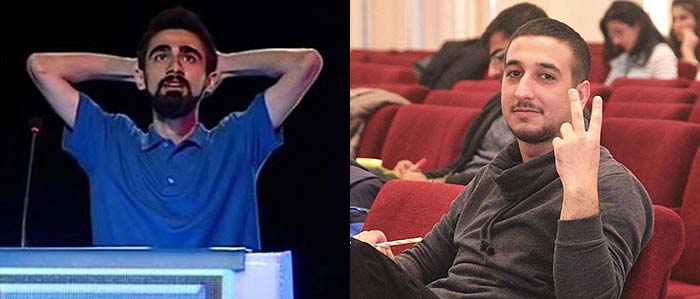
Qiyas Ibrahimov and Bayram Mammadov were arrested after spray painting graffiti on a monument to Heydar Aliyev in Baku.
The government of Azerbaijan is carrying out a multi-pronged attack on freedom of expression, including introducing harsh penalties for critical speech online, imprisoning young activists for nothing more than graffiti, blocking access to websites of independent media, and harassing and violating the rights of journalists and activists. The undersigned organisations call upon the Azerbaijani authorities to reverse this alarming trend and respect basic human rights and freedoms, as well as for international partners to ensure Azerbaijan honours its treaty commitments as a state party to the European Convention on Human Rights and the International Covenant on Civil and Political Rights.
Earlier this year, two young activists from the N!DA youth movement, Bayram Mammadov and Qiyas Ibrahimov, were arrested after spraypainting graffiti on a monument to Heydar Aliyev in Baku. They were arrested on spurious drug charges and allegedly tortured repeatedly in police custody. Ibrahimov was recently sentenced to ten years imprisonment in what the head of the country’s press freedom watchdog Institute for Reporters’ Freedom and Safety Emin Huseynov rightfully called, “a prime example of travesty of justice in Azerbaijan.”. Mammadov, whose trial is underway, will most likely face the same fate as last Friday the prosecution requested a 10 years and 6 months imprisonment for him.
In Sumqayit, the journalist Ikram Rahimov and a private citizen Rahman Novruzov were sentenced to a year in prison for libel after reporting on bribery and tax evasion by local authorities. In striking similarity to the N!DA case, Rahimov alleges he was tortured for three days by local police after refusing to apologise to the local authorities whose criminal activity he had uncovered. Meanwhile in Jalilabad region, the journalist Afgan Sadigov is set to begin trial for “infliction of a minor harm to heath” after an altercation with a local woman with a history of getting into physical confrontations with citizens who anger regional authorities through dissent or critical reporting. Sadigov faces up to five years in prison.
“The arbitrary persecution of Azerbaijani journalists is disturbing, and it is vital that the state protect its citizens’ rights to expression and freedom from torture and arbitrary detention,” said Robert Hårdh, Director of Civil Rights Defenders, “these cases represent a serious deterioration in the rule of law in the country, and it is vital that steps be taken to remedy the situation.”
Independent journalists who stay out of jail are also having a hard time reaching their audience, as the websites of the local affiliates of RFE/RL and Voice of America have reportedly been blocked .
Finally, on 30 November parliament passed laws criminalising “online defamation or derogation of honor and dignity” of President Ilham Aliyev. Violators face fines up to 1000 AZN (€537) or two years in prison, or 1500 AZN (€805) or a year in prison if they do so using “fake profiles or nicknames.” As online defamation is already criminalised in Azerbaijan, this amounts primarily to another warning that dissent, in any form, will be harshly punished.
‘The new law is a blatant attempt to clamp down on the only remaining space for Azerbaijani people to freely express themselves in a country where traditional media have been silenced via legal means and harassment’, said Gulnara Akhundova, Head of Department at International Media Support.
The undersigned organisations call on the Azerbaijani authorities to cease the politically-motivated prosecution and torture of journalists, to repeal the new laws further criminalising dissent and free speech, to vacate the conviction of Qiyas Ibrahimov and cease the persecution of Bayram Mammadov, and finally the public unfettered access to independent sources of news and opinion. Furthermore, we call on Azerbaijan’s international partners to use their leverage, both bilaterally and through multilateral institutions, to hold Azerbaijan accountable to its international commitments, and the board of the Extractive Industries Transparency Initiative to take the aforementioned violations of basic human rights into consideration when deciding on Azerbaijan’s continued membership.
ARTICLE 19
CEE Bankwatch Network
Civil Rights Defenders
European Federation of Journalists
Freedom Now
Helsinki Foundation for Human Rights
Human Rights House Foundation
Index on Censorship
Institute for Reporters’ Freedom and Safety
International Media Support
International Partnership for Human Rights
MYMEDIA
Netherlands Helsinki Committee
Norwegian Helsinki Committee
PEN America
PEN International
People in Need
Platform
Reporters Without Borders
World Organisation Against Torture (OMCT)[/vc_column_text][/vc_column][/vc_row][vc_row][vc_column][vc_basic_grid post_type=”post” max_items=”4″ element_width=”6″ grid_id=”vc_gid:1481189397931-57791a34-3950-3″ taxonomies=”7145″][/vc_column][/vc_row]
06 Dec 16 | Index in the Press
Theresa May has been urged to confirm she will put human rights reform on her agenda when she meets Saudi and Bahraini leaders on Tuesday, after announcements on her two-day trip to the Gulf were squarely focused on trade and security. Read the full article
05 Dec 16 | News and features, Turkey, Turkey Uncensored
[vc_row][vc_column][vc_column_text]

Turkey Uncensored is an Index on Censorship project to publish a series of articles from censored Turkish writers, artists and translators.
This is the second instalment of Ece Temelkuran’s periodic diary of developments in Turkey’s age of emergency rule.[/vc_column_text][vc_column_text]23 November: The women around me are more alert to the Turkey’s situation than the men are. The comfortable male universe is full of denial encased in a constantly refreshed argument: “It cannot go on like this; this is not sustainable.” And my reiterated response to this denial: “What will stop it?” There are neither domestic nor international limits to the resident’s ambitions. While the world is rightly horrified by the jailing of writers and journalists, the objections fall on the president’s deaf ears. Turkey’s opposition is spent, its strength consumed by endless court appearances. A handful of lawyers are trying to catch their breath while running between courtrooms to represent or witness the trials of Turks caught up in the witch hunt that swept the nation in the wake of the failed 15 July coup.
24 November: Just another day in a land of insanity. The EU Parliament announced its decision to freeze Turkey’s accession talks due to the government’s suppression. Three soldiers were killed by a Syrian jet, interestingly on the anniversary of Turkish jets bringing down a Russian plane last year. There was no news due to the traditional news ban so we don’t know if there will be a war tomorrow. And Ahmet Türk, the most prominent and dovish figure of Kurdish politics was jailed. He is 74 years old. Turkish lira dipped to a new record.
On the streets, the humour is in accordance with the insanity: “Make Turkey so-so again!”
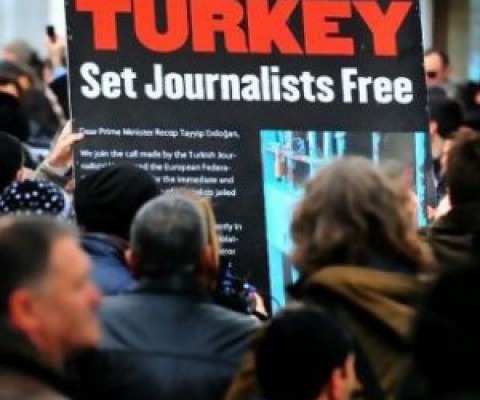 25 November: Castro dies. As with everything else, this also becomes a subject of dispute between opposition and government supporters. Nothing can escape being the object of polarisation in the country. After some people say goodbye to Castro on social media, government supporters revolt: “How can you support a dictator?” If the partisanship can make you defend child rapists, which happened recently due to a child abuse case in a government-affiliated charity foundation, it can make you do anything.
25 November: Castro dies. As with everything else, this also becomes a subject of dispute between opposition and government supporters. Nothing can escape being the object of polarisation in the country. After some people say goodbye to Castro on social media, government supporters revolt: “How can you support a dictator?” If the partisanship can make you defend child rapists, which happened recently due to a child abuse case in a government-affiliated charity foundation, it can make you do anything.
26 November: President Erdogan is threatening the European Union. “We will open the borders for refugees and you will see,” he says. His reckless statements are on one side, Europe’s ethical failure about refugees on the other. Erdogan now seems to be the bull abducting Europa. As the fundamentals of Western civilisation and democratic values come to pieces, the bulls around the globe find their way to the top.
One perfect Balkan noir scene at a Zagreb cafe. At each table there is a grumpy old man reading a newspaper while the young waiter plays high volume Riders on the Storm at high volume. He asks where I am from. “Oh Istanbul! Never been there,” he says. I smile. “Go before it is too late.” He smiles back with sarcasm: “I am from Bosnia. Everywhere is too late.” Maybe true. Maybe it’s a bulls’ world now.
27 November: I was avoiding this piece of news for two days. I have finally read it. A nine-year-old girl died of a heart attack because she couldn’t take the pressure of facing her rapist during her hearing in court. One friend asked: “Why have the men all of sudden became so evil in this country?” My answer is “Because they can!” When the rule of law is damaged and basic human values are shaken, they can. And we, stunned like a beaten dog, just murmur: “It cannot go on like this.” But it does.
28 November: Came to Copenhagen for NewXChange, the meeting point for the world of journalism. I will be speaking in a panel with the title Are we out of Touch? Well, Trump is tweeting: “CNN is so embarrassed by their total (100%) support of Hillary Clinton, and yet her loss in a landslide, they won’t know what to do.” He knows that attacking established media will get him more points than anyone can imagine. While talking about Operation Euphrates Shield president Erdogan said: “We entered Syria for nothing else but to end cruel reign of Al-Assad” It is as if Turkey declared war on Syria. People are asking, “How can he say that?” Well, shall I repeat it once more? Because he can.[/vc_column_text][/vc_column][/vc_row][vc_row][vc_column][vc_basic_grid post_type=”post” max_items=”4″ element_width=”6″ grid_id=”vc_gid:1485774671069-2b48111f-e2eb-10″ taxonomies=”8607″][/vc_column][/vc_row]
04 Dec 16 | News and features
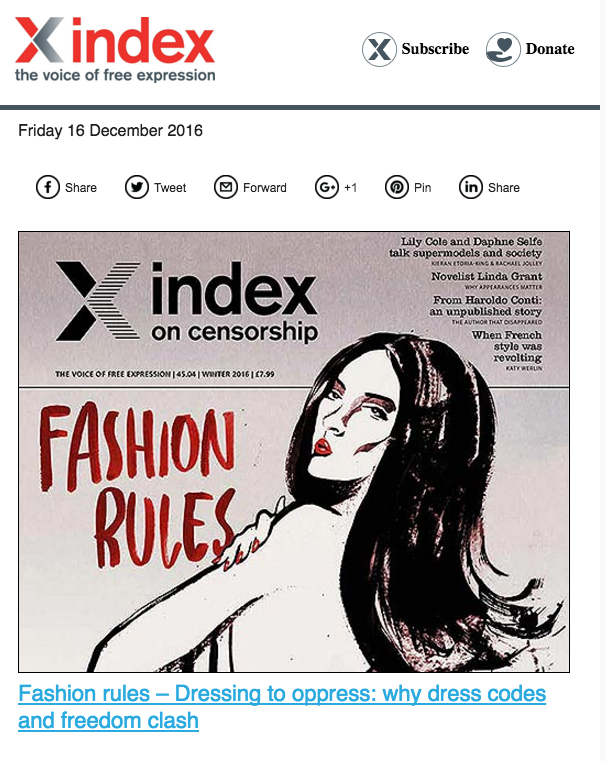 Index on Censorship is a nonprofit defends people’s freedom to express themselves without fear of harm or persecution. We fight censorship around the world.
Index on Censorship is a nonprofit defends people’s freedom to express themselves without fear of harm or persecution. We fight censorship around the world.
To find out more about Index on Censorship and our work protecting free expression, join our mailing list to receive our weekly newsletter, monthly events email and periodic updates about our projects and campaigns.
Index on Censorship will not share, sell or transfer your personal information with third parties. You may may unsubscribe at any time. To learn more about how we process your personal information, read our privacy policy.
You will receive an email asking you to confirm your subscription to the weekly newsletter, monthly events roundup and periodic updates about our projects and campaigns.
04 Dec 16 | Bahrain, Bahrain Statements, Campaigns, Campaigns -- Featured, Middle East and North Africa, Statements
[vc_row][vc_column][vc_column_text]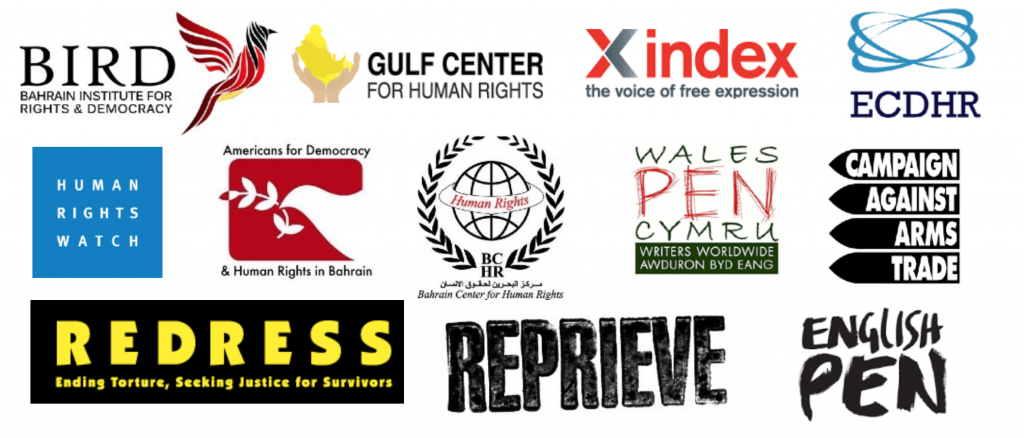
Theresa May
Prime Minister
10 Downing Street
London
SW1A 2AA
Cc: Boris Johnson
Secretary of State for Foreign and Commonwealth Affairs
King Charles Street
London
SW1A 2AH
December 4, 2016
Dear Prime Minister,
The undersigned organisations are writing to you in advance of your trip to Bahrain on 6 December to express our concerns over the deteriorating human rights situation in the country and the UK government’s abject failure to exert any positive influence in this regard.
After your meeting with King Hamad at 10 Downing Street on October 26, 2016, when he invited you to be the “guest of honour” at the Gulf Cooperation Council Leaders’ Summit, your office issued a statement referring to “the progress that had been achieved through the King’s ongoing domestic reform programme.”
Unfortunately, there is no evidence to support any claims of progress where human rights are concerned. In fact there has been a marked deterioration in the human rights situation in Bahrain since June 2016, when the authorities dissolved the main political opposition group, al-Wifaq, jailed the country’s leading human rights activist, Nabeel Rajab, and harassed and prosecuted Shia clerics who peacefully protested the arbitrary revocation of the citizenship of al-Wifaq’s spiritual leader, Sheikh Isa Qasim.
In November, authorities charged Ebrahim Sharif, a prominent political activist, with “inciting hatred of the political system” after he criticised Bahrain’s government and a state visit to Bahrain by Britain’s Prince Charles, which was undertaken at the request of the British government. Although authorities have reportedly dropped these charges against Sharif, Nabeel Rajab remains detained on spurious charges and the government has denied his requests to be freed on bail while judicial proceedings continue. He faces charges that on the face of it solely relate to his peaceful criticism of Bahraini government policies, including Bahrain’s participation in the Saudi-led coalition’s airstrikes in Yemen and alleged torture of prisoners in the country’s largest prison. It is extremely disappointing that the UK has not called for Nabeel Rajab’s release, or indeed the release of any dissidents who are in jail solely for expressing their rights to free expression and assembly.
In response to a Freedom of Information request submitted by the Bahrain Institute for Rights and Democracy in April 2015, the UK Foreign and Commonwealth Office stated that the UK has provided the Bahraini authorities with a package of technical assistance, funding, and training, “focused on strengthening the oversight mechanisms responsible for investigating allegations of torture and mistreatment and supporting the reform of detention procedures in Bahrain.” However, as a November 2016 report by Amnesty International and a 2015 report by Human Rights Watch made clear, authorities have made little progress in holding officials accountable for the mistreatment and torture of detainees.
According to Amnesty International, “the UK government’s portrayal of the Ombudsman and the Special Investigations Unit as model institutions is utterly disingenuous”. We also have concerns that Bahrain may soon break a five-year de facto moratorium on the death penalty. Mohammed Ramadan and Husain Ali Moosa are both facing the death penalty despite the fact that their convictions hinge almost entirely on confessions that they retracted and which they claim were extracted after torture. In the case of Mohammed Ramadan, an investigation by Reprieve and the Bahrain Institute for Rights and Democracy demonstrated that the Ombudsman sent misinformation to the FCO, claiming not to have received torture complaints, a false claim that FCO Minister Tobias Ellwood then repeated in response to a written question from Tom Brake MP.
Your status as the guest of honour at this summit is a clear reflection of the close alliance that the UK government now enjoys with the government of Bahrain and the other Gulf Cooperation Council states.
The Bahraini authorities’ orchestrated attack on the rights to free expression, assembly and association, has seriously undermined the prospects of a political solution to Bahrain’s domestic unrest. If your government is serious about its commitment to encouraging reform and dialogue, you should use this influence to press the government of Bahrain to put an immediate stop to this repression. We urge you in particular, as part of this trip, to urge your Bahraini hosts to release Nabeel Rajab and other the political detainees without whom no process of dialogue will be possible.
Yours,
Americans for Democracy & Human Rights in Bahrain
Bahrain Center for Human Rights
Bahrain Institute for Rights and Democracy
Campaign Against Arms Trade
English Pen
European Centre For Democracy and Human Rights
Gulf Centre for Human Rights
Human Rights Watch
Index on Censorship
Redress
Reprieve
Wales Pen Cymru
[/vc_column_text][/vc_column][/vc_row][vc_row][vc_column][vc_basic_grid post_type=”post” max_items=”4″ element_width=”6″ grid_id=”vc_gid:1481021954644-66a7548e-2d8b-9″ taxonomies=”716″][/vc_column][/vc_row]
02 Dec 16 | News and features, Turkey, Turkey Uncensored
[vc_row][vc_column][vc_column_text]

Turkey Uncensored is an Index on Censorship project to publish a series of articles from censored Turkish writers, artists and translators.
[/vc_column_text][vc_column_text]More than anything else, it’s the central question that takes a grip on you: “Will I ever be able to see Turkey, my homeland, again?”
This was the feeling that caught me as I crossed the 15 July Martyrs Bridge over the Bosphorus just days after the failed coup attempt.
Before the failed coup it was known as the First Bridge. During the coup it was one of the centers of bloody scenes that marked the beginning of nationwide chaos and trauma that is still unfolding.
I knew I, just as my nation, was heading towards the unknown. At the time, the only thing that mattered was freedom – perhaps the most precious element in any journalist’s existence.
I knew, even as the tragedy for Turkey played out on the streets, that no matter the outcome, among the first victims would be our freedom, which had been fragile for years. Before the coup, we had been forced to deal with the monster of intolerance deeply embedded in the upper echelons of the state. The fierce power struggle had snowballed into a putsch.
As I watched the sun rise on 16 July, I knew without a doubt that the Turkey’s weary journalists — including me — would be rounded up sooner or later.
Freedom mattered. Freedom to be. Freedom to do. My most vivid thought, crossing the bridge, was to move to a free domain, to be able to do what I should: to observe, to listen and to write Turkey’s interesting and baffling story.
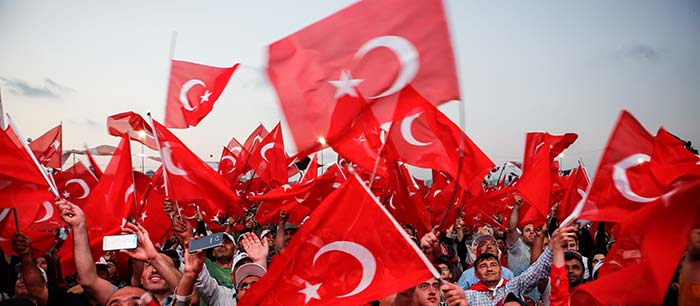 But when you must leave, crossing into exile means something much different than a sigh of relief. You leave parts of yourself behind and you know that they will haunt you. Exile, voluntary or not, means a total reset on your existence. It is a journey laced with second thoughts and unforeseen consequences. You will questioned and criticised by some and admired by others for your adventurous nature.
But when you must leave, crossing into exile means something much different than a sigh of relief. You leave parts of yourself behind and you know that they will haunt you. Exile, voluntary or not, means a total reset on your existence. It is a journey laced with second thoughts and unforeseen consequences. You will questioned and criticised by some and admired by others for your adventurous nature.
But once in exile, you are very much on your own. Your routines ruined, and your plans abandoned or in need of modification. It’s like entering a darkened room that you must map by touch.
I felt, still, lucky.
Once across the border, all I felt initially was a sense of numbness. It was strangely calming because I had already made this journey out of Turkey into exile.
Decades ago, as a student repulsed by political violence and state brutality, I had to leave Turkey for Scandinavia. I had a memory, a developed sense of intuition: I knew what the stakes were. When you proceed to safety, you rely on your good friends, forget dwelling so much on tomorrow or the day after, and find a place to settle. Whenever in doubt, remember to be thankful that you are free. It’s calmness that matters.
Then you do two things: recalculate your sources for survival and try to do your best to save those that you left behind who are in danger. As I settled somewhere in Europe, I had already absorbed the notion that I would be living on the minimum.
I sensed that good colleagues would not leave Turkey’s exiled journalists out in the cold. Most of them loved Turkey and its people; found its story fascinating, and admired our resilience in the face of repeated waves of oppression. In many cases recently, I was proven right. Those of us in exile, I believe, do not feel abandoned.
Exile means living in solidarity. I persuaded two colleagues to get out before they too were served with invitations to discuss their involvement in the “media leg of a terrorist organisation”. A third changed their mind and luckily still stands free. I worked on the cases of journalists who are stuck or on the run, connecting them with others who can provide legal or financial help. It’s an ongoing process, just as the era of emergency rule continues.
Exile means living with the uncertainty of time. It eats at you. It is an indefinite sentence filled with questions: When will things return to a semblance of normality? Will I ever be able to return? What if I end up like an Iranian intellectual, who have never been able to go home? What if I will have to abandon journalism, cease my sharing of the truth and be forced to do something else?
My gut tells me that this time Turkey’s turmoil may turn out to be long-lasting and leave a more harmful imprint on the nation’s soul. We are in the midst of an open-ended story, mapping the contours by touch with very few clues about the finale.
Exile means spending your days in a fog.[/vc_column_text][/vc_column][/vc_row][vc_row][vc_column][vc_column_text]Yavuz Baydar is the co-founder of Platform for Independent Journalism (P24), an initiative to support and promote editorial independence in the Turkish press. He is a veteran Turkish columnist and blogger and was awarded the Special Award of the European Press Prize in 2014.[/vc_column_text][/vc_column][/vc_row][vc_row][vc_column][vc_custom_heading text=”Turkey Uncensored” use_theme_fonts=”yes”][vc_basic_grid post_type=”post” max_items=”4″ element_width=”6″ grid_id=”vc_gid:1485774765528-af1463e8-b299-7″ taxonomies=”8607″][/vc_column][/vc_row]
02 Dec 16 | Mapping Media Freedom
[vc_row][vc_column][vc_column_text]Each week, Index on Censorship’s Mapping Media Freedom project verifies threats, violations and limitations faced by the media throughout the European Union and neighbouring countries. Here are five recent reports that give us cause for concern.
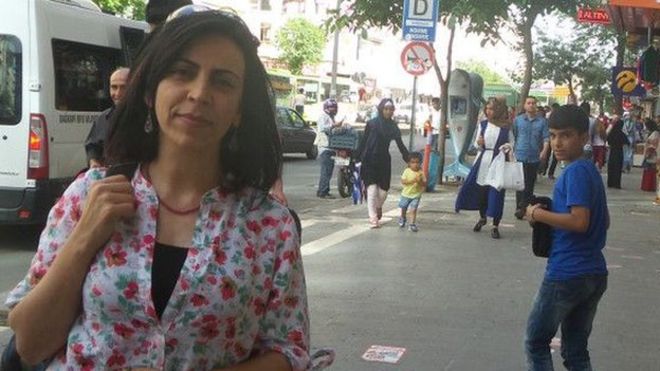
Hatice Kamer (Photo: BBC)
Hatice Kamer, also known as Khajijan Farqin, is a freelance journalist for BBC Turk and Voice of America. She was detained in Diyarbakir on 26 November while reporting on a landslide that killed at least ten workers in a copper mine.
Kamer was taken into custody in Siirt province at a police checkpoint; reasons for her detention remain unclear. Due to the state of emergency declared in Turkey, even the journalist’s attorney was unable to contact her.
On 27 November Kamer was released after spending a night in jail. She was told she would face charges of supporting the Kurdistan Workers Party (PKK) through her reporting. The journalist states there is no evidence of supporting the outlawed party through her work.
Dutch-American journalist Kevin Roberson, owner of the online news portal Roberson Report, was attacked at an anti-Black Pete demonstration in Utrecht.
Black Pete is a character in Dutch folklore said to be a servant to Saint Nicholas. The character is often portrayed by a white person in blackface and has become subject to controversy in the Netherlands, many claiming the inclusion of the character in Sinterklaas traditions is racist.
At the event, a group of Black Pete defenders emerged, identifying themselves as members of the alt-right movement Nederlandese Volks-Unie (NVU).
One of the members attacked Roberson from behind, hitting him on the head and neck then running away. Roberson posted the video online. The journalist told Mapping Media Freedom that he is fearing for his safety. “My home address is circulating in right-wing social media groups,” Roberson stated, “I don’t feel safe anymore.”
Roberson is pressing charges against the attacker.
On 25 November, Russian TV channel Dozhd reported that two of its correspondents, Sergei Polonsky and Vasiliy Yerzhenkov, were detained by intelligence agencies in the self-proclaimed Donetsk People’s Republic.
Dozhd reported that, “Three employees of the Ministry of State Security were involved in the interrogation. They watched videos and deleted them. They also blocked Polonsky’s phone, broke Yerzhenkov’s phone and destroyed his notebook.”
Polonsky stated that they did not receive physical abuse, only psychological. The reporters were told that the reason for their detention was “false information” in their accreditation, but Polonsky proved that the information was correct.
Yerzhenkov and Polonsky were in the region to interview Alexey Khodakovsky after receiving permission from the Security Service of Ukraine and the ministry of the Donetsk People’s Republic.
The two reporters are now banned from entering the area after giving “biased” and “provocative” reports on Donetsk.
At a rally for the main Macedonian opposition party, the Social Democratic Union of Macedonia (SDSM), a TV journalist and cameraperson for the Macedonian TV channel MTV 1 were insulted by party supporters.
In Tetovo, this was not the first time an incident like this occurred. “We would like to emphasise that this is not the first time our journalists have been insulted during an SDSM rally,” an MTV 1 report stated, “Our journalists are being blocked from fulfilling their professional duties.”
The reporters were harassed, insulted and spat on as they attempted to report from the rally. The SDSM condemned the incident, saying they were against any negative treatment of the media regardless of its beliefs.
A film crew for REN TV in Moscow was assaulted after investigating fraud at a candle company. According to the clients, the company was offering candle-making lessons which clients would pay for, but the company would take the money and leave the clients without lessons.
While speaking to the director of the company, the crew was attacked by him after he blocked one of the cameramen and pushed reporter Dariya Ermakova to the ground. The incident was caught on video by one of the other cameramen.
Ermakova filed a report to the police who are currently investigating. [/vc_column_text][/vc_column][/vc_row][vc_row][vc_column][vc_column_text]
Click on the bubbles to view reports or double-click to zoom in on specific regions. The full site can be accessed at https://mappingmediafreedom.org/
[/vc_column_text][vc_basic_grid post_type=”post” max_items=”4″ element_width=”6″ grid_id=”vc_gid:1480680872724-f03c210d-ad9e-2″ taxonomies=”6564″][/vc_column][/vc_row]
01 Dec 16 | Press Releases
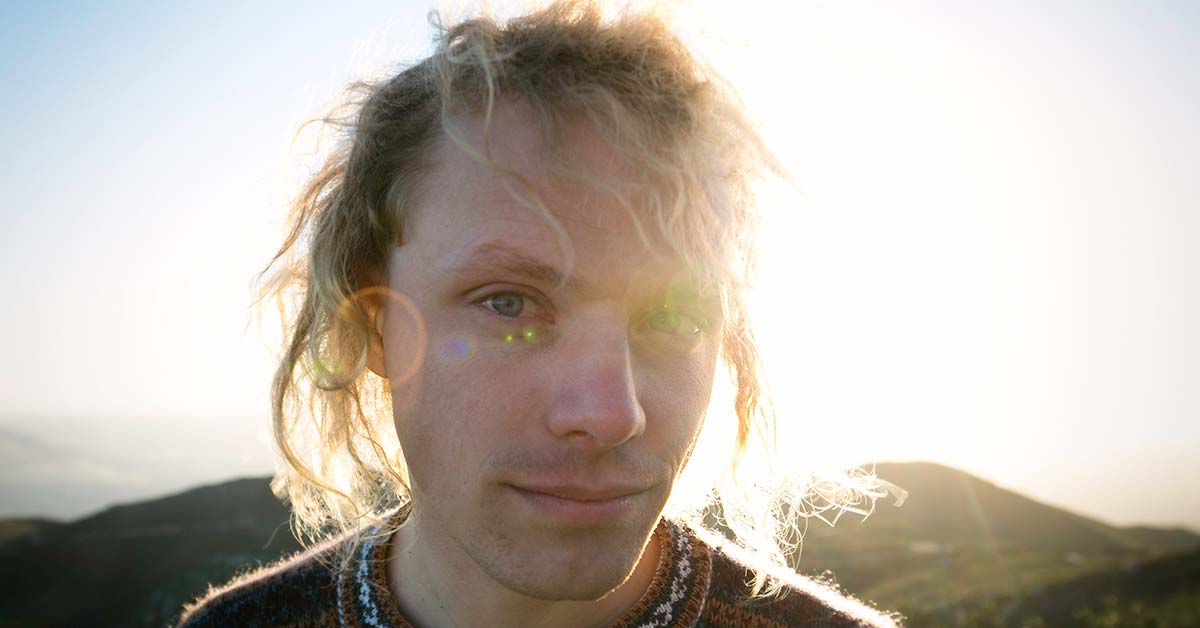
Moddi (Photo: Jorgen Otay)
Free speech campaigners Index on Censorship will host a night of forbidden music on December 7 to raise money for censored artists.
This candlelit evening features songs that have been banned or censored, which will be performed live by award-winning Norwegian musician Moddi to celebrate the launch of his ‘Unsongs’ album — 12 tracks from global artists, including Kate Bush and Pussy Riot. The one-off event will be hosted in the restored Hoxton Hall, one of the East End’s hidden Victorian gems.
Moddi’s collection unfurls stories of censorship, persecution and repression, such as A Matter of Habit, a song inspired by interviews with Israeli soldiers and which was banned from army radio in 2012.
Also included in the set will be Moddi’s version of Punk Prayer, which gained international notoriety after Russian feminist punk band Pussy Riot staged a performance of the song at Moscow’s Cathedral of Christ the Saviour. The group said it was a protest against the Orthodox church’s support for Russia’s President Vladimir Putin. Three members of the group were sentenced to two years in prison for “hooliganism motivated by religious hatred”.
Earlier this month Moddi pulled Punk Prayer from his set at a festival in Finnmark, Norway’s northernmost county on the border with Russia, after Russia’s Consulate General in expressed concerns about the song being performed.
‘Forbidden Songs’ is a festive fundraiser in support of freedom of expression charity Index on Censorship, which champions musicians, artists and others around the world who are facing censorship and repression. All proceeds from the night will go to support Index’s Freedom of Expression Awards Fellowship supporting persecuted artists, journalists and campaigners.
Previous award winners include hip-hop artist Smockey, from Burkina Faso, whose studio has been repeatedly targeted for attack because of his involvement with a campaign for democratic reforms that ousted the country’s long-serving and dictatorial president.
Tickets for the event are £15 and include a free drink courtesy of Flying Dog Brewery.
For more information or to arrange an interview, please contact Helen Galliano helen@indexoncensorship.org
Notes to Editors
What the critics say about Moddi:
“Making banned music dangerous once again.” The Independent
“An eye-opening lesson in the importance of music” Mojo
“A brave, thought-provoking, musically adventurous project” The Quietus
“Music still has the power to confront authority” The Guardian
“Witty and spry” Financial Times
Index on Censorship campaigns for and defends free expression worldwide. We publish work by censored writers and artists, promote debate, and monitor threats to free speech. We believe that everyone should be free to express themselves without fear of harm or persecution – no matter what their views.
www.indexoncensorship.orgModdi & Unsongs
Unsongs is a remarkable collection of songs that have, at one stage, been banned, censored or silenced. The attempts to suppress them were as mild as an airplay ban and as brutal as murder. With great sensitivity and imagination, Norwegian singer-songwriter Moddi has given them new life and created a moving and eye-opening album. Unsongs simultaneously celebrates the censored and exposes the censors.
01 Dec 16 | European Union, News and features
[vc_row][vc_column][vc_column_text]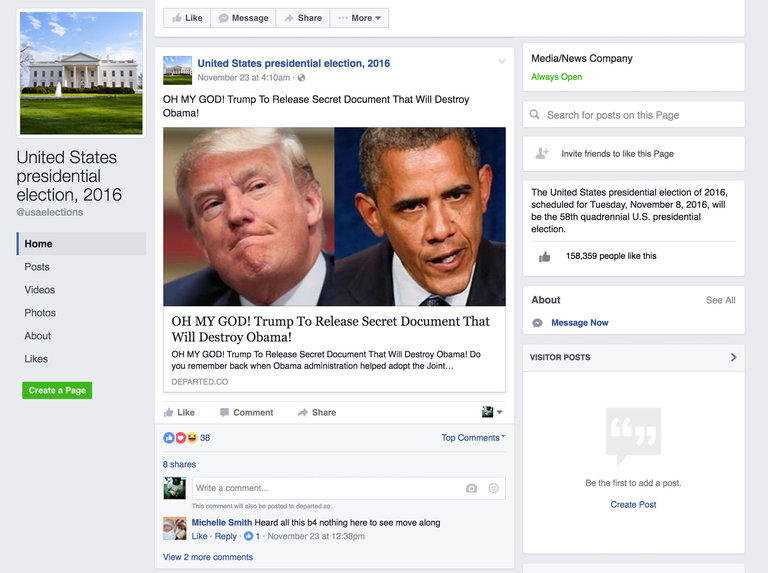
Social media is all atwitter these days with the unremarkable discovery that people lie.
So much so that Oxford Dictionaries has designated “post-truth” as its international word of the year. For those of you not hip to the jargon, it means “relating to or denoting circumstances in which objective facts are less influential in shaping public opinion than appeals to emotion and personal belief.”
In other words, facts don’t count.
Perhaps spawned by the spate of alleged news stories made up out of whole cloth during the recent presidential election in the United States, people of all stripes are weighing in on the issue du jour: How can we ensure that what we read on Facebook or Twitter is real?
I ask, “Why bother?”
Consider the Ninth Commandment (or Eighth, at least as interpreted by Catholics and Lutherans): “Thou shalt not bear false witness against thy neighbour.”
That sounds like a dire warning against lying, which was something that must have been quite popular during the day, and still is. Besides going to hell, most every country in the world has libel laws designed to compensate people whose reputations have been damaged by lies.
But today the allegation of lying seems to be taking on more sinister effects. There have been some allegations that false news stories actually swung votes in the US presidential election. If so, why is “fake news” so effective? I believe we can go back to Lord Mansfield’s 18th century dictum “the greater the truth, the greater the libel” for some insight. Whether we just want to believe something is true or we pick and choose our truths to match our political cloth, we find ourselves in an era where we can scan a headline, read the lede and say, “That seems believable enough.”
Thus, manufacturing stories out of thin air has become a cottage industry and an apparently successful one.
Trying to get on the perceived “right side” of the issue, it comes as little surprise that social media companies such as Facebook are engaged in damage control, saying they are trying out new versions of their algorithms to weed out postings that are simply made up.
And to that I again ask, “Why bother?”
For in fact, doing so may just cause greater harm to free expression than any lie, no matter how damaging.
Because besides the difficulty in determining truth from opinion to a bald-faced lie, the inherent limiting of ideas, including criminalising them, makes us all suffer a little bit.
Today we are seeing criminal and administrative prosecution for activities on social media platforms that involve responding to existing content (i.e. sharing, re-posting, uploading, liking, quoting and commenting) and that contributes to an environment of fear.
Combine this with the growing tendency for nations to apply anti-extremism and anti-terrorism laws to content on social media platforms and the result is social media users, including members of the media, are being fined, arrested and imprisoned for interacting or reacting to content produced by third parties or for expressing their opinions on it.
This is censorship and can lead to self-censorship.
Instead, issues related to social media activities should be addressed exclusively through self-regulation, education and literacy, not through new restrictions.
As the Representative on Freedom of the Media for the Organization for Security and Co-operation in Europe, I recently recommended that the participating states that comprise the body to recognize the following:
- That no one should be penalised for social media activities that come as a reaction or interaction with existing content;
- That no one should be penalised for the social media activities such as posting and direct messaging unless they can be directly connected to violent actions and satisfy the test of an “imminent lawless action”;
- That no one should be held liable for content on social media platforms and on the internet of which they are not the author, as long as they do not specifically intervene in that content or refuse to comply with court orders to remove that content, where that have the capacity to do so (“mere conduit principle”);
- The necessity to decriminalise defamation, insult and blasphemy;
- That any imposition of any sanctions imposed by courts of law, especially when it comes to social media activities, should be in strict conformity with the principle of proportionality;
- The need for education and literacy on freedom of expression on the internet.
Let’s not overreact to the wave of fake news by building another wall around the internet.
Dunja Mijatović is the Representative on Freedom of the Media for the OSCE, based in Vienna.[/vc_column_text][/vc_column][/vc_row][vc_row][vc_column][vc_basic_grid post_type=”post” max_items=”4″ element_width=”6″ grid_id=”vc_gid:1480348630223-46408dc4-0b68-7″ taxonomies=”6380″][/vc_column][/vc_row]
30 Nov 16 | Index in the Press
One of IWPR’s long-term contributors from Kazakstan, Gaziza Baituova, has been nominated for the Index on Censorship Journalism Award 2017. Read the full article
30 Nov 16 | Index in the Press
A Bahraini criminal court has sentenced a sports journalist to three months in prison for a tweet that allegedly defamed the Sunni sect of Islam. Read the full article
29 Nov 16 | Index in the Press
Організація Index on Censorship відзначила посилення ворожого ставлення по відношенню до ЗМІ по всьому світу. Поширення подібних настроїв призводить до зростання нападів на працівників ЗМІ а також загрожує свободі слова. Read the full article




 25 November: Castro dies. As with everything else, this also becomes a subject of dispute between opposition and government supporters. Nothing can escape being the object of polarisation in the country. After some people say goodbye to Castro on social media, government supporters revolt: “How can you support a dictator?” If the partisanship can make you defend child rapists, which happened recently due to a child abuse case in a government-affiliated charity foundation, it can make you do anything.
25 November: Castro dies. As with everything else, this also becomes a subject of dispute between opposition and government supporters. Nothing can escape being the object of polarisation in the country. After some people say goodbye to Castro on social media, government supporters revolt: “How can you support a dictator?” If the partisanship can make you defend child rapists, which happened recently due to a child abuse case in a government-affiliated charity foundation, it can make you do anything. Index on Censorship is a nonprofit defends people’s freedom to express themselves without fear of harm or persecution. We fight censorship around the world.
Index on Censorship is a nonprofit defends people’s freedom to express themselves without fear of harm or persecution. We fight censorship around the world.
 But when you must leave, crossing into exile means something much different than a sigh of relief. You leave parts of yourself behind and you know that they will haunt you. Exile, voluntary or not, means a total reset on your existence. It is a journey laced with second thoughts and unforeseen consequences. You will questioned and criticised by some and admired by others for your adventurous nature.
But when you must leave, crossing into exile means something much different than a sigh of relief. You leave parts of yourself behind and you know that they will haunt you. Exile, voluntary or not, means a total reset on your existence. It is a journey laced with second thoughts and unforeseen consequences. You will questioned and criticised by some and admired by others for your adventurous nature.

